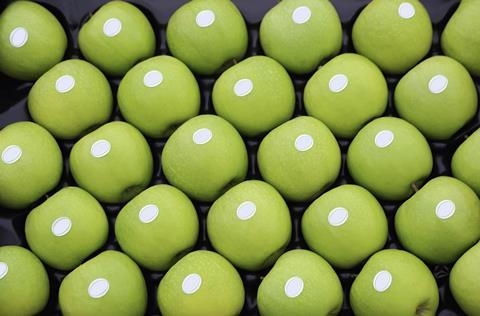Duncan Jones, senior marketing manager at Sinclair, looks at navigating the complexities of sustainable fruit stickers.
Manufacturing PLU fruit stickers with a compostable construction – adhesive, face stock and inks – to meet food safety standards, certification requirements and performance requirements has been quite the undertaking, according to Duncan Jones of Sinclair.

It requires materials that will compost easily in ambient temperatures but also stay on fruit all the way through to the consumers’ fruit bowl.
The label must withstand application in demanding packhouse environments, survive its journey through the entire supply chain – which can last weeks – arrive on a retail shelf, and then be disposed of in a home compost or a composting facility.
The characteristics that make a sticker compostable can easily detract from the characteristics needed to survive this challenging process.
TIMEBOUND TESTING
“Identifying, manufacturing and testing eco-friendly materials is challenging but continues apace as we work to meet industry needs globally,” Jones tells Fresh Focus Packaging and Technology.
“Sustainable PLU sticker development has gained momentum as more suitable eco-friendly materials become available. This allows for faster development, but with testing taking up to six months for industrial compostable products and 12 months for home compostable PLU stickers, time is a significant factor in achieving OK compost (industrial or home) certification or legislative and regulatory requirements.”
When a material does not pass testing requirements, then often it is a case of ‘back to the drawing board’ to develop and manufacture a new material for meeting OK compost certification and market requirement deadlines – in France, for example.
For the full article, see the upcoming Fresh Focus Packaging and Technology special inside Eurofruit June



